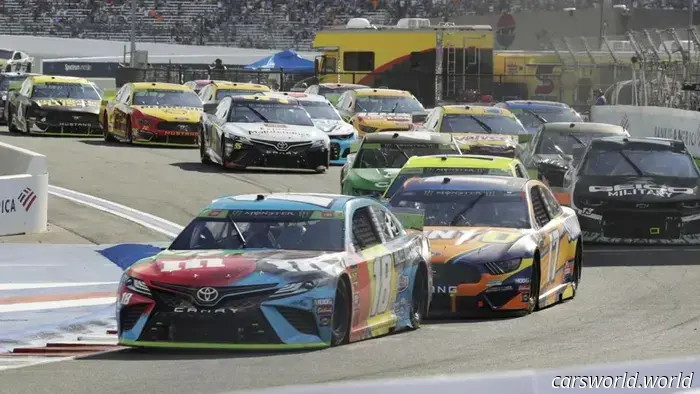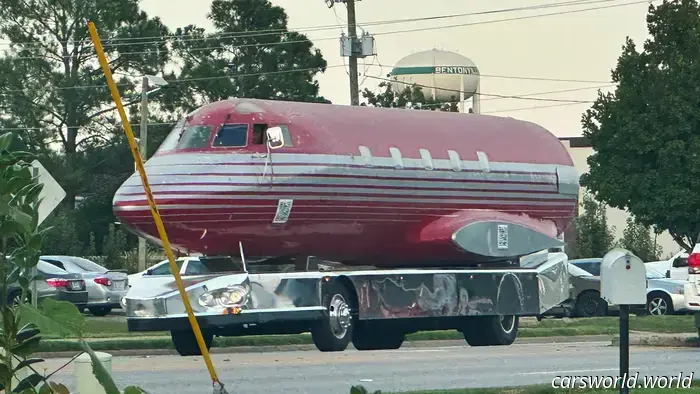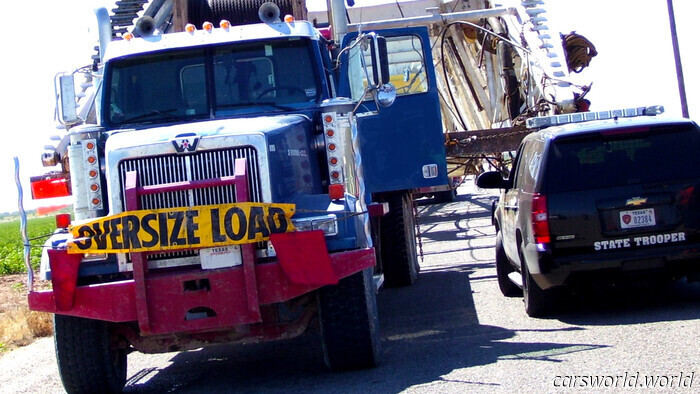
North Carolina's 'Right to Race' Law Will Support the Continuation of Tracks
Charlotte Motor Speedway
The major news and reviews in the automotive world, no nonsense.
Our complimentary daily newsletter delivers the stories that truly matter to you every weekday.
North Carolina has officially ratified House Bill 926, which includes a clause to "protect the right to race." Essentially, this means that individuals cannot move near a racetrack and then complain about the noise in an attempt to have it shut down.
Specifically, Article 10 of House Bill 926 discusses "Racing Facility and Racetrack Nuisance Immunity." After defining a racetrack and clarifying that this rule applies within a three-mile radius of a racing facility, it outlines the following:
"A racing facility cannot be subjected to any action by a surrounding property owner under any nuisance or taking cause of action if the developer of the racing facility obtained all necessary permits for construction and established a vested right in developing the property or contiguous group of properties where the racing facility is situated before the surrounding property owner purchased the real estate or constructed any building nearby."
SEMA issued an email today thanking Rep. Allen Chesser for "guiding" the provision and Governor Josh Stein for approving it.
Charlotte Motor Speedway
It’s logical that North Carolina would support racing. NASCAR has a vast presence in the state with significant corporate offices and research and development facilities. Additionally, North Carolina is home to many racetracks. Alongside premier motorsport venues like Charlotte Motor Speedway, the state boasts around 40 active tracks that host public events, as noted in a 2021 state budget document, and 28 short track venues that conduct racing "almost weekly," according to the North Carolina Motorsports Association.
The National Speedway Directory illustrates the geographical distribution of the state's tracks, which are scattered across the area. SEMA reports that North Carolina's economic impact in relation to motorsports is $3.82 billion annually, generating "nearly 20,000 jobs, with over $1.35 billion in wages and contributing more than $477 million in taxes."
I personally live just over three miles from a dirt track (in a different state). Therefore, according to North Carolina's law, I would still be able to voice my complaints, though I wouldn’t. On a Friday night, I can hear the motors from my home when the wind blows just right (it sounds like a line from a country song), yet they only operate a few hours each week during a relatively short season.
I understand the desire of some individuals to avoid racing sounds near their homes. However, with about 40 tracks distributed over North Carolina's 53,819 square miles, I believe those individuals should be able to find residences away from the noise of racing venues.
Do you operate or work at a small track? Is there similar legislation being considered in your state? Feel free to reach out to me at [email protected], I’d love to hear from you.


Other articles
 Elvis Presley’s old jet is simply cruising around my town.
A YouTuber purchased Elvis' Lockheed JetStar and converted it into a recreational vehicle. It is now traveling through the heart of the country alongside regular traffic.
Elvis Presley’s old jet is simply cruising around my town.
A YouTuber purchased Elvis' Lockheed JetStar and converted it into a recreational vehicle. It is now traveling through the heart of the country alongside regular traffic.
 Texas Abruptly Renders Certain Truck Driver Licenses Useless for Non-Citizens | Carscoops
New federal regulations have paused CDL renewals for non-citizen drivers in Texas, impacting thousands of truck drivers.
Texas Abruptly Renders Certain Truck Driver Licenses Useless for Non-Citizens | Carscoops
New federal regulations have paused CDL renewals for non-citizen drivers in Texas, impacting thousands of truck drivers.
 YouTuber MKBHD's $50,000 deposit for a Roadster would now be worth over $1 million in Tesla shares, according to Carscoops.
After a lengthy wait, Marquess Brownlee finally received his deposit back, drawing attention to the complicated refund process and what might have amounted to a significant sum.
YouTuber MKBHD's $50,000 deposit for a Roadster would now be worth over $1 million in Tesla shares, according to Carscoops.
After a lengthy wait, Marquess Brownlee finally received his deposit back, drawing attention to the complicated refund process and what might have amounted to a significant sum.
 Volvo Rejects EM90 Minivan for the U.S. Following Emergence of PHEV Patent | Carscoops
Marketing a high-end minivan such as the EM90 could be a shrewd decision for Volvo.
Volvo Rejects EM90 Minivan for the U.S. Following Emergence of PHEV Patent | Carscoops
Marketing a high-end minivan such as the EM90 could be a shrewd decision for Volvo.
 A Prototype Detonated Within Faraday Future's Headquarters, Resulting in the LA Building Being Condemned | Carscoops
An outdated FF 91 prototype ignited at Faraday Future's headquarters in Los Angeles, resulting in damage to a building while the battery pack remained unharmed.
A Prototype Detonated Within Faraday Future's Headquarters, Resulting in the LA Building Being Condemned | Carscoops
An outdated FF 91 prototype ignited at Faraday Future's headquarters in Los Angeles, resulting in damage to a building while the battery pack remained unharmed.
 The Final Breath of the EV Credit: Summary of Q3 2025 Sales
Here’s a brief overview of auto sales in the U.S. for Q3.
The Final Breath of the EV Credit: Summary of Q3 2025 Sales
Here’s a brief overview of auto sales in the U.S. for Q3.
North Carolina's 'Right to Race' Law Will Support the Continuation of Tracks
North Carolina is no longer considering noise complaints from individuals who choose to live near race tracks.
